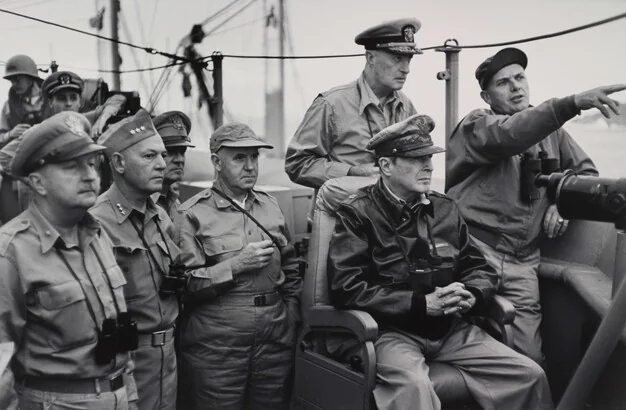
The last war the United States actually won was World War II. We’ve fought plenty of wars since then, but they were both not officially wars, that is, they were not officially declared, and we didn’t win them. We didn’t lose them, either. In Vietnam, we abandoned a war that the opposition ended up winning because we gave up. Elsewhere, we have fought for years with no clear goal and no idea even of what winning the war would entail (Iraq, Afghanistan, etc. The fighting of these inconclusive wars began in 1950, with our incursion into Korea.
As Rating America’s Presidents explains, on August 10, 1945, with the Japanese on the verge of surrender, the U.S. divided Korea at the thirty-eighth parallel, into Soviet and American occupation zones. No one expected this arrangement to continue indefinitely, but the U.S. was entirely unprepared when, on June 25, 1950, the Communists of North Korea invaded the South. The United Nations condemned the invasion and sent troops to Korea to counter the invaders.
Most of the troops were American; General Douglas MacArthur, a World War II hero, commanded them. President Truman, however, did not ask Congress for a declaration of war; this was the first of a huge number of “police actions” that the U.S. military would pursue.
MacArthur achieved great early success, but then the Communist Chinese invaded in November 1950 and threw the UN forces back. MacArthur wanted to attack Chinese bases, which Truman would not allow, as he did not want to escalate the conflict. MacArthur began acting unilaterally until Truman summarily fired him. This was a tremendously unpopular move at the time, as the American people understood MacArthur as trying to win the war and liberate the Communist North, with Truman stymieing him.
Reality was more complicated: the Chinese forces were significantly stronger than the U.S. had anticipated, and Truman worried that getting involved in a direct conflict with them could provoke World War III. This undeclared war went on inconclusively until after Truman was out of the White House.
The fact was not at all clear at the time, but the Korean War was disastrous for the United States in a number of ways. In bypassing congressional approval, Truman set a precedent for a myriad of undeclared military interventions that have sapped America’s strength in ill-defined conflicts where American involvement does not serve American interests. Placing American troops under UN auspices was another negative precedent, for although Americans commanded the UN troops in the Korean conflict, the door was opened to American troops being commanded by foreigners who did not have America’s best interests at heart.
It was not necessarily contrary to American interests to get involved militarily in Korea; there was ample justification for trying to defend free societies and beat back Communist aggression. However, it was extremely unwise of Truman to commit U.S. forces to a conflict for which the military was unprepared and that it was unable to win.
Truman’s firing of MacArthur was entirely correct: the president is the commander in chief of the armed forces, and no general should ignore or countermand his orders. However, drawing back when MacArthur had a chance to win the war set yet another bad precedent. Truman’s desire to avoid a global conflict was certainly realistic and prudent, but the inconclusiveness of the Korean War set the stage for the involvement of the U.S. in conflicts in which victory was not the goal — and in which there was no clear goal at all.
The Korean War also gave rise to the Cold War situation of a more or less permanent mobilization. For the first time in American history, the U.S. began to maintain a large military force in what was supposed to be peacetime. With Communism growing increasingly aggressive worldwide, particularly in Eastern Europe and China, this situation was unavoidable. However, Truman’s successor, Dwight D. Eisenhower, would warn of its inherent pitfalls. His warning has not been heeded.
As for Korea, an armistice took effect in July 1953, with the boundary between the Communist North and the free South much the same as it had been before the war began. Neither side could be said to have won, an outcome that, after the Korean War, would be repeated in many military engagements in which the U.S. would be involved.
















